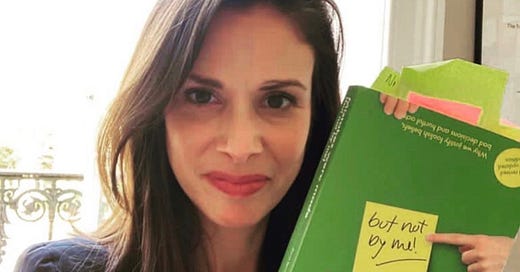Get comfortable with being wrong
Here's how you can start embracing the joy of having been wrong
Dear Rethinkers, (and to new subscribers, a warm hello!)
This week’s newsletter is on one of my favourite topics – the joy and pain of having been wrong (or being comfortable not getting it right!) As always, I’d love to hear your thoughts and questions in the comments.
I give a lot of time and thought to my writing so that I can deliver insightful and m…
Keep reading with a 7-day free trial
Subscribe to Rethink with Rachel to keep reading this post and get 7 days of free access to the full post archives.




